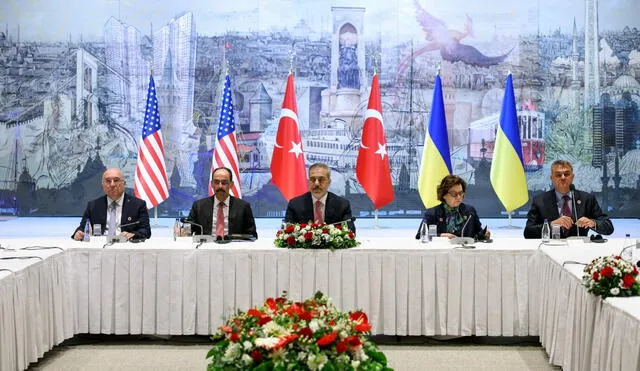Russia and Ukraine agree to exchange 2,000 Prisoners in first direct talks in three years
In a rare diplomatic breakthrough after years of silence, Russia and Ukraine have agreed to exchange 2,000 prisoners of war — a powerful signal that, even amid devastation, dialogue remains possible. Could this be the first step toward ending Europe’s deadliest conflict in decades?

Ukraine and Russia met face-to-face for a peace long overdue, and had not had direct peace negotiations in over 3 years, on to date visible on the ground. The meeting ended in an agreement, and a success, they agreed to exchange a total of 2000 prisoners of war (unmilitary personnel), who will be 1000 on either side - in the largest swap since the conflict began to date. There was no cease fire, Russia made its claim for Ukraine to withdraw from its occupied territories of Ukraine, for any of the other conditions set forth by Russia - Ukraine would need to accept those issued by Russia.
Turkey mediated the prisoners of war exchange negotiations, and noted the presence of representatives from the United States, France, the United Kingdom and Germany. Ukraine's defense minister Rustem Umerov called for an unconditional ceasefire for 30 days; Russia's pursuit focused on why they deemed the "causes" of the war needed an immediate, direct response. Ukraine made claims against Russia they introduced "unacceptable" preconditions, including withdrawing from territories of suffient border lengths.
Zelenskyy urges EU pressure as Trump plans Putin meeting amid ongoing Russia-Ukraine ceasefire talks
While President Volodymyr Zelenskyy was at a European summit in Albania, he urged other leaders to maintain pressure on Moscow, after consultations with U.S. President Donald Trump, French President Emmanuel Macron, German Chancellor Olaf Scholz, British Prime Minister Rishi Sunak, and Polish Prime Minister Mateusz Morawiecki, where new EU sanctions against Russia were mentioned but didn't materialize as Russia proved uncooperative. U.S. president Donald Trump stated he intends to meet with Russian president Vladimir Putin in order to expedite peace.
Ultimately, both sides had not agreed to a ceasefire, but were exchanging ceasefire proposals and allowing for the potential for leaders to meet. Turkish foreign minister Hakan Fidan said that the parties will submit written conditions for a possible ceasefire. The Vatican had at one point offered to host future negotiations, but optimism regarding Russia's commitment to a sincere negotiation remained scarce.

ALSO SEE: Supreme Court blocks Trump’s attempt to deport Venezuelan Migrants under Alien Enemies Act
Russia and Ukraine agree on Prisoner swap, raising hopes for future peace Talks
The prisoner swap will happen in a few days, both sides agreed. This gesture is considered a confidence-building one. The deal is seen as a small success in a larger narrative of a war already taking tens of thousands of lives and causing destruction.
Although the talks did not get to a ceasefire agreement, the parties signed off to continue to negotiate and successfully agreed to a prisoner swap that provides some hope for what comes next. Analysts think the very fact both sides had the willingness to negotiate is a good sign for future peace, although there are many hurdles remaining.












